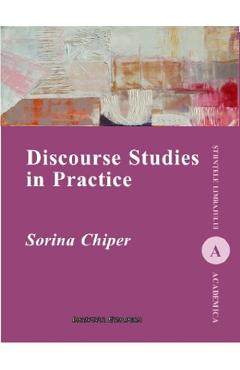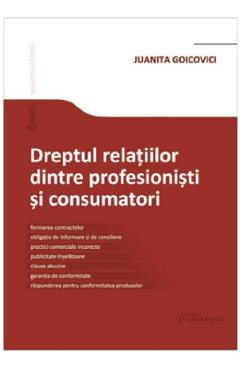- Informatii telefonice:(+40) 748 400 200
Discourse Studies in Practice - Sorina Chiper
Cod intern: xsales_97320283Producator: Sorina Chiper
Vizualizari: 8 / Achizitii: 8
Stoc: In stoc
Pret: 41.23 RON
Acest produs este publicat in categoria Librarie la data de 01-12-2025: 08:12 si vandut de Libris. Vanzatorul isi asuma corectitudinea datelor publicate. ( alege finantarea potrivita )
-
Produs cu garantie
-
Livrare direct din stocul fizic al Libris
-
Retur gratuit minim 14 zile de la data achizitiei
From Table of Contents: - The Discourse of Romanian Universities - Unpacking Local Council Meetings: a Sociolinguistic Approach and Its Lessons for Participatory Democracy - The Discourse of Corporate Social Responsibility in a Critical Perspective: Corporate Identity in the Mining Industry In more recent times, discourse analysis, often called critical discourse analysis, has expanded both in depth and in scope. It has become clear that discourse does not only serve specific goals, but plays an active role in framing our very understanding of life and reality. Thus, the perspective is no longer personal, sender to receiver and vice versa, but also (cross)cultural [...]. In her article "Grice`s Conversational Maxims in Intercultural Communication: from a Discourse-Based Approach to Communication Ethics" (this volume), Sorina Chiper says: "What I find missing in textbooks of intercultural communication is analyses of actual chunks of conversation". She is certainly not the only researcher to feel this need and her book deserves praise for supplying exactly that. Here are specific and detailed analyses of specific real-life communication and the analyses involve a range of aspects from meaning and connotation to ideology, politics and economy. - Steen Schousboe Emeritus, Department of English, University of Copenhagen



























Scrie parerea ta
Discourse Studies in Practice - Sorina Chiper
Ai cumparat produsul Discourse Studies in Practice - Sorina Chiper ?
Lasa o nota si parerea ta completand formularul alaturat.
From Table of Contents: - The Discourse of Romanian Universities - Unpacking Local Council Meetings: a Sociolinguistic Approach and Its Lessons for Participatory Democracy - The Discourse of Corporate Social Responsibility in a Critical Perspective: Corporate Identity in the Mining Industry In more recent times, discourse analysis, often called critical discourse analysis, has expanded both in depth and in scope. It has become clear that discourse does not only serve specific goals, but plays an active role in framing our very understanding of life and reality. Thus, the perspective is no longer personal, sender to receiver and vice versa, but also (cross)cultural [...]. In her article "Grice`s Conversational Maxims in Intercultural Communication: from a Discourse-Based Approach to Communication Ethics" (this volume), Sorina Chiper says: "What I find missing in textbooks of intercultural communication is analyses of actual chunks of conversation". She is certainly not the only researcher to feel this need and her book deserves praise for supplying exactly that. Here are specific and detailed analyses of specific real-life communication and the analyses involve a range of aspects from meaning and connotation to ideology, politics and economy. - Steen Schousboe Emeritus, Department of English, University of Copenhagen
Acorda un calificativ